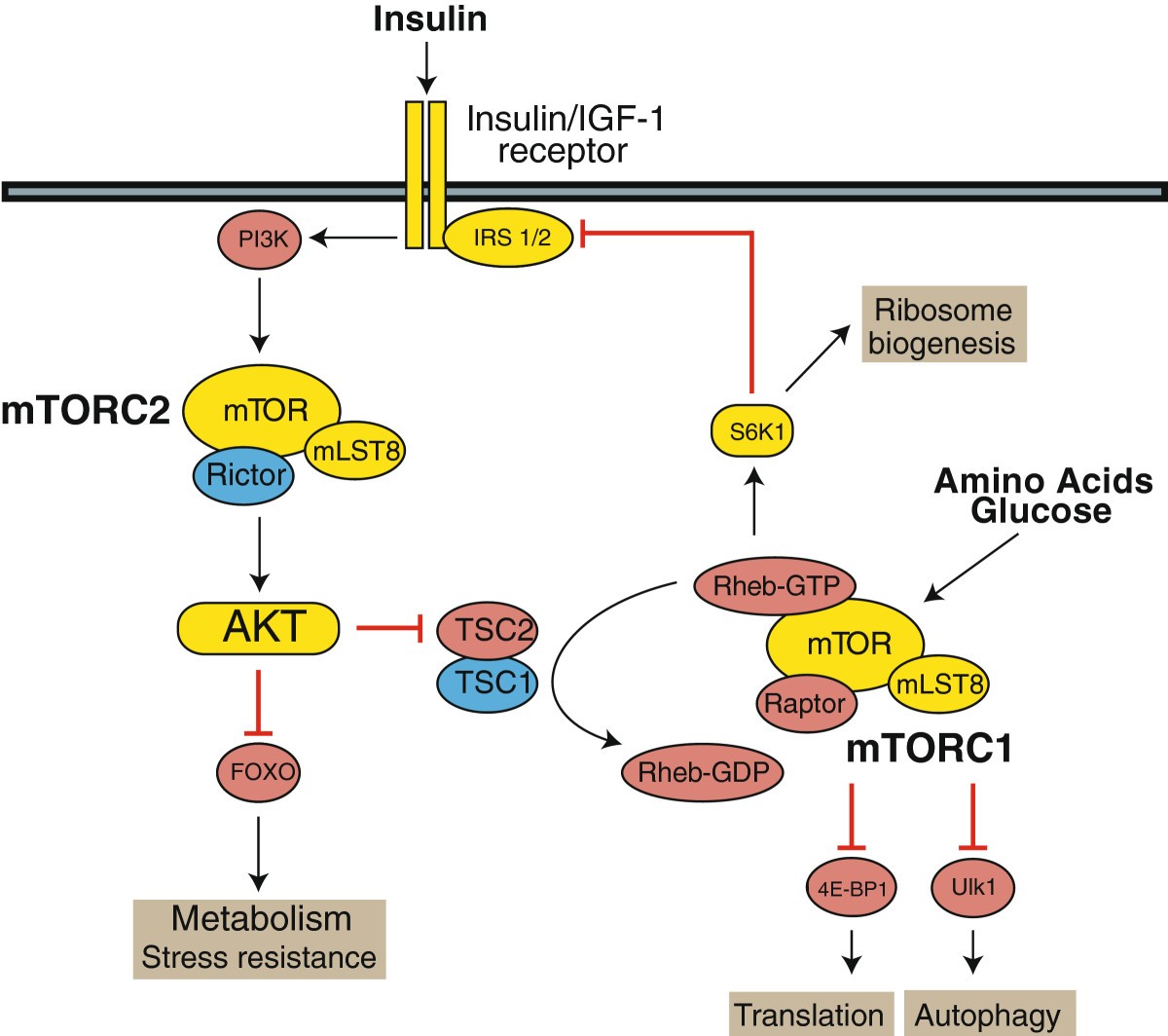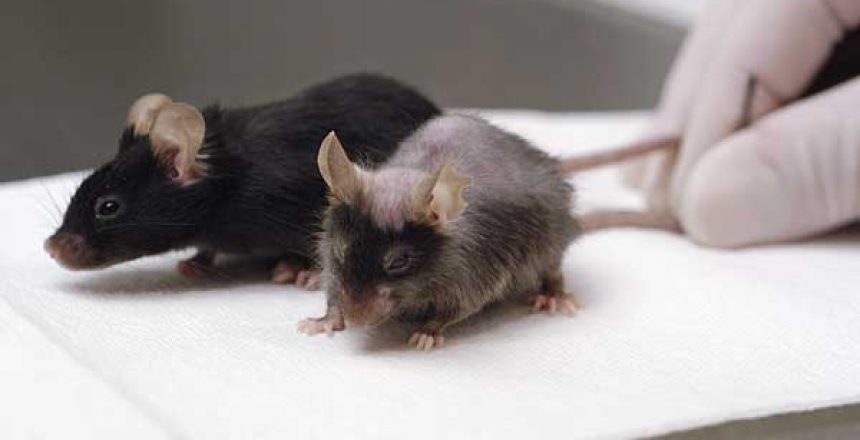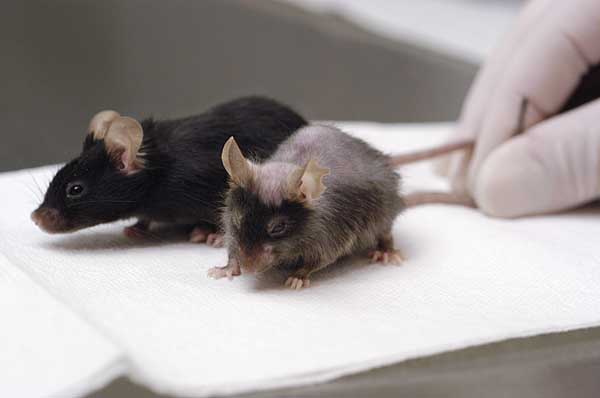There’s a lot of confusion and misdirection in the area of diet and aging, so let’s see if we can get some of it straightened out.
mTOR
mTOR is the mammalian target of rapamycin, a molecular mechanism that integrates growth and energy signals.[1] When mTOR is activated by nutrients, it signals the cell to grow.
mTOR is likely very important in promoting aging.
We know this because rapamycin, a drug that extends lifespan in lab animals, inhibits mTOR.[2] The basic idea is that mTOR signaling is vitally important in the growth of an organism, but that its activation after maturity results in aging.
Nutrients activate mTOR. Hence the power of calorie restriction to prolong lifespan: fewer nutrients, less mTOR activation, longer life.
Other lifespan-promoting agents also deactivate mTOR. Metformin, for example.[3] Iron chelators deactivate mTOR.[4] (And of interest, rapamycin interferes with iron metabolism.[5])
What sort of nutrients activate mTOR, and are they equally potent in activation?
It’s common to read that amino acids (from protein) activate mTOR, and indeed they do, but this is a very incomplete picture.[6]
Hence the obsessive idea in some quarters that dietary protein promotes aging is, if not entirely wrong, incomplete and misleading.
One reason the picture is misleading is because mTOR is intimately linked to insulin, the hormone whose primary purpose is to regulate glucose metabolism. See the illustration below, showing the linkage. Note that glucose also activates mTOR.[7]

Insulin activation is linked to mTOR activation. And what activates insulin the most? Carbohydrates.
IGF-1 signaling is also implicated in aging. Insulin and IGF-1 levels are highly correlated.[8]
Carbohydrates increase the risk of breast cancer recurrence 5-fold in IGF-1 positive cancer by increasing IGF-1 activity.[9]
Fasting
Intermittent fasting promotes longer lifespan.[10] Fasting appears to have all of the benefits but little of the downsides of calorie restriction.
Fasting activates AMPK, which inhibits mTOR. Note that other antiaging interventions like rapamycin and metformin also activate AMPK.
But, what aspect of fasting activates AMPK? Is it absence of food altogether, or absence of a particular macronutrient?
Carbohydrate restriction regulates the adaptive response to fasting.[11]
Human subjects either fasted for 3.5 days, or fasted and got a lipid infusion, and “Changes in plasma glucose, free fatty acids, ketone bodies, insulin, and epinephrine concentrations during fasting were the same in both the control and lipid studies.”
“These results demonstrate that restriction of dietary carbohydrate, not the general absence of energy intake itself, is responsible for initiating the metabolic response to short-term fasting.”
That’s not to say that protein has no involvement, but it does seem to confirm that the widely circulated pronouncements of certain scientists that protein promotes aging is badly misleading.
One reason that protein is likely to be much less of a concern than carbohydrates for aging is that the ketogenic diet, by definition very low in carbohydrates, extends lifespan.[12]
The ketogenic diet also inhibits mTOR and increases AMPK.[13] This is despite the fact that a ketogenic diet normally contains a full complement of protein, perhaps 10 to 15% of calories, and sometimes more.
Glucose and lifespan
There’s an abundance of evidence, all but ignored, that dietary glucose promotes aging.
Glucose triggers apoptosis in yeast chronological aging.[14]
Glucose restriction extends C. elegans life span by inducing mitochondrial respiration and increasing oxidative stress.[15]
Mice taking the anti-diabetic drug acarbose, which inhibits the absorption of carbohydrates, lived longer, males by 22%.[16]
Humans who took acarbose had a 50% reduction in cardiovascular risk.[17]
These results above are for dietary glucose. Carbohydrates are of course long chains of glucose, which when broken down become glucose in the body. If a person has the least bit of insulin resistance, and often even if they don’t, blood glucose rises.
Then there’s metformin which, next to rapamycin, is considered the best shot at a bona fide life extension drug.[18]
And what does metformin do? It lowers blood glucose and insulin via multiple mechanisms.
A drug that lowers glucose and insulin extends lifespan, showing the critical importance of these two molecules for aging and lifespan.
The OTC supplement glucosamine also extends lifespan, by interfering with glucose metabolism.[19]
Calorie and protein restriction
Some have thought that the effects of calorie restriction may be due to restriction of protein. One piece of evidence for that is that restriction of the single amino acid methionine extends lifespan, and seems to mimic calorie restriction.[20] However, methionine restriction isn’t the same as restricting all protein, and other mechanisms may account for it.
Calorie restriction improves glucose metabolism and lowers insulin levels, but protein restriction does not.[21]
“The effect of dietary restriction on lifespan in rodents is explained by calories alone.”[22]
Valter Longo recommends a vegan diet
Valter Longo, who is perhaps the scientist best known to the public in the field of aging research, recommends a (nearly) vegan diet for longevity.[23]
“Eat mostly vegan, plus a little fish, limiting meals with fish to a maximum of two or three per week… keep protein intake low… Minimize saturated fats from animal and vegetable sources (meat, cheese) and sugar, and maximize good fats and complex carbs.”
Based on what I’ve written above, there doesn’t seem to be a lot of solid backing for Longo’s recommendations. (Other than no sugar.)
He says nothing about avoiding ultra-processed foods, the main dietary cause of disease and early death in the developed world. His low-protein strategy is based on weak epidemiology, and doesn’t take into account all of the evidence laid out above that carbohydrates and glucose have far more to do with aging than protein, which may not matter at all.
Chronic mTOR activation
Activation of mTOR is not a problem for aging, in my view. Chronic activation is.
As we age, we become more insulin resistant, leading to chronically high insulin levels, and chronically activated insulin receptors. As we saw, insulin is connected to mTOR. When insulin increases, mTOR is activated.
Insulin is not a problem. It’s a necessary hormone that is there to do a job. Likewise, mTOR is a necessary molecular mechanism. Chronically activated mTOR promotes aging.
In a glucose tolerance test, 75 grams of glucose (15 teaspoons, a large bolus) are given orally. In a normal person, blood glucose and insulin will return to normal within 2 hours.[24]
If someone were eating all the time, or had insulin resistance due to obesity or some other condition, then glucose and insulin will remain elevated constantly. mTOR would be activated chronically.
Conclusion
A large body of evidence shows that carbohydrates generally, and glucose specifically, are much more important to aging than protein.
A ketogenic diet, by definition low in carbohydrates, extends lifespan. But to my knowledge, no one has ever shown that a vegan diet extends lifespan.
Scientists involved in the study of aging are of course specialized, but there’s an unfortunate tendency for them to ignore diet, other than calorie restriction.
Furthermore, again to my knowledge, no one has ever extended the lifespan of a carnivore by calorie restriction. Only omnivores, eating high-carbohydrate diets, have had their lives extended by calorie restriction.
Vegetarians are not overrepresented among long-lived humans. But people with low insulin resistance – high insulin sensitivity, leading to less chronic activation of mTOR – are.[25]
Dietary carbohydrates promote aging, and protein does less so if at all.
But somehow scientists are not seeing this.
Update:
I meant to include the following, very interesting study: Effect of Dietary Macronutrient Composition on AMPK and SIRT1 Expression and Activity in Human Skeletal Muscle. ( Draznin, B., et al. “Effect of dietary macronutrient composition on AMPK and SIRT1 expression and activity in human skeletal muscle.” Hormone and Metabolic Research 44.09 (2012): 650-655.)
Calorie restriction activates AMPK, the cellular energy sensor which deactivates mTOR. CR also activates PGC1 alpha, which promotes mitochondrial biogenesis. Both are key factors in long life.
The study used human volunteers in 4 conditions: overfeeding or underfeeding, each with a high carb or low carb diet.
“Our data indicate that a relative deficiency in carbohydrate intake or, albeit less likely, a relative excess of fat intake even in the absence of caloric deprivation is sufficient to activate the AMPK-SIRT 1-PGC1α energy-sensing cellular network in human skeletal muscle. “
This indicates that at least part of the physiological response to calorie restriction comes from a decrease in carbohydrate.
In all dietary conditions, protein was 20% of calories, which shows that protein has no effect on these responses to calorie restriction. It’s all about carbohydrates.
[1] Laplante, Mathieu, and David M. Sabatini. “mTOR signaling in growth control and disease.” Cell 149.2 (2012): 274-293.
[2] Blagosklonny, Mikhail V. “Calorie restriction: decelerating mTOR-driven aging from cells to organisms (including humans).” Cell Cycle 9.4 (2010): 683-688.
[3] Sahra, Isaam Ben, et al. “Metformin, independent of AMPK, induces mTOR inhibition and cell-cycle arrest through REDD1.” Cancer research 71.13 (2011): 4366-4372.
[4] Ohyashiki, Junko H., et al. “The oral iron chelator deferasirox represses signaling through the mTOR in myeloid leukemia cells by enhancing expression of REDD1.” Cancer science100.5 (2009): 970-977.
[5] Maiorano, Annamaria, et al. “Sirolimus interferes with iron homeostasis in renal transplant recipients.” Transplantation82.7 (2006): 908-912.
[6] Tokunaga, Chiharu, Ken-ichi Yoshino, and Kazuyoshi Yonezawa. “mTOR integrates amino acid-and energy-sensing pathways.” Biochemical and biophysical research communications 313.2 (2004): 443-446.
[7] Lamming, Dudley W. “Diminished mTOR signaling: a common mode of action for endocrine longevity factors.” Springerplus3.1 (2014): 735.
[8] Nam, S. Y., et al. “Effect of obesity on total and free insulin-like growth factor (IGF)-1, and their relationship to IGF-binding protein (BP)-1, IGFBP-2, IGFBP-3, insulin, and growth hormone.” International journal of obesity 21.5 (1997): 355.
[9] Emond, Jennifer A., et al. “Risk of breast cancer recurrence associated with carbohydrate intake and tissue expression of IGFI receptor.” Cancer Epidemiology and Prevention Biomarkers 23.7 (2014): 1273-1279.
[10] Honjoh, Sakiko, et al. “Signalling through RHEB-1 mediates intermittent fasting-induced longevity in C. elegans.” Nature457.7230 (2009): 726.
[11] Klein, S. A. M. U. E. L., and ROBERT R. Wolfe. “Carbohydrate restriction regulates the adaptive response to fasting.” American Journal of Physiology-Endocrinology and Metabolism 262.5 (1992): E631-E636.
[12] Roberts, Megan N., et al. “A ketogenic diet extends longevity and healthspan in adult mice.” Cell metabolism 26.3 (2017): 539-546.
[13] McDaniel, Sharon S., et al. “The ketogenic diet inhibits the mammalian target of rapamycin (mTOR) pathway.” Epilepsia52.3 (2011): e7-e11.
[14] Ruckenstuhl, Christoph et al. “The sweet taste of death: glucose triggers apoptosis during yeast chronological aging.” Aging vol. 2,10 (2010): 643-9. doi:10.18632/aging.100223
[15] PMID: 17908557
[16] Harrison, David E., et al. “Acarbose, 17‐α‐estradiol, and nordihydroguaiaretic acid extend mouse lifespan preferentially in males.” Aging cell 13.2 (2014): 273-282.
[17] Chiasson, Jean-Louis, et al. “Acarbose treatment and the risk of cardiovascular disease and hypertension in patients with impaired glucose tolerance: the STOP-NIDDM trial.” Jama290.4 (2003): 486-494.
[18] Chiasson, Jean-Louis, et al. “Acarbose treatment and the risk of cardiovascular disease and hypertension in patients with impaired glucose tolerance: the STOP-NIDDM trial.” Jama290.4 (2003): 486-494.
[19] Weimer, Sandra et al. “D-Glucosamine supplementation extends life span of nematodes and of ageing mice.” Nature communications vol. 5 3563. 8 Apr. 2014, doi:10.1038/ncomms4563
[20] Richie Jr, John P., et al. “Methionine restriction increases blood glutathione and longevity in F344 rats.” The FASEB Journal 8.15 (1994): 1302-1307.
[21] Mitchell, Sharon E et al. “The effects of graded levels of calorie restriction: II. Impact of short term calorie and protein restriction on circulating hormone levels, glucose homeostasis and oxidative stress in male C57BL/6 mice.” Oncotarget vol. 6,27 (2015): 23213-37. doi:10.18632/oncotarget.4003
[22] Speakman, J. R., Sharon Elizabeth Mitchell, and M. Mazidi. “Calories or protein? The effect of dietary restriction on lifespan in rodents is explained by calories alone.” Experimental Gerontology 86 (2016): 28-38.
[23] https://valterlongo.com/daily-longevity-diet/
[24] Crofts, Catherine, et al. “Identifying hyperinsulinaemia in the absence of impaired glucose tolerance: An examination of the Kraft database.” Diabetes research and clinical practice 118 (2016): 50-57.
[25] Barbieri, Michelangela, et al. “Age‐related insulin resistance: is it an obligatory finding? The lesson from healthy centenarians.” Diabetes/metabolism research and reviews17.1 (2001): 19-26.














37 Comments
Interesting post. Of special interest to me is your comment that iron chelators appear to deactive mTOR, and thus also possibly extend lifespan. Ever since I had a bad experience with iron overload a few years ago, I have been donating blood regularly, and I also take an IP6 capsule (which is an iron chelator) every morning. I wonder if anyone is looking into IP6 as another supplement that may also help extend lifespan? IP6 seems to have no negative side effects at all (for me, anyway), in contrast to metformin, which may have unwanted side effects for some people.
Seen this? Inositol hexaphosphate plus inositol induced complete remission in stage IV melanoma: a case report. https://www.ncbi.nlm.nih.gov/pubmed/30615010
IP6 is a complex carb found in cereals, nuts and grains.
Too vegan for me ????
Thanks. I knew that IP6 had anti-cancer properties also. Here is something that may be of interest. I just came across this short article you authored a couple years ago, PD:
https://thewinnower.com/papers/1015-iron-and-not-mtor-is-the-primary-driver-of-aging
The logic makes some sense to me. I think I will continue taking my daily IP6 capsule. It can’t hurt, and there is a real possibility that it could be providing some significant benefits, in terms of longevity and anti-cancer effects.
I wrote a few things and posted them on The Winnower. 3 years later, that all seems like such a waste of time.
Excellent article. I think Professor Ben Bikman has come to a similar conclusion.
https://www.youtube.com/watch?v=z3fO5aTD6JU
Problem is that BB doesn’t always quote his sources for his bold claims. I emailed him countless times but he never replied. He said that protein without carbs actually lowers insulin but he did not back that claim.
Every single doctor, nutritionist or other “influencer” should be required to strictly follow the diet they espouse, and not allowed to change it short of total health breakdown resulting in widely publicized hospitalization. Any significant deviation from the espoused diet that is not publicly admitted to (mea culpa) should be prosecutable under RICO statues.
Physician, don’t just heal thyself, but eat your own cooking, too.
Great post, very timely too as I believe this is an issue that seems to be polarising the science-based nutrition space at the moment. Personally I fall down on the same side as you Dennis – as per Ben Bikman’s video which has also been posted here, as well as the views of all the main protein researchers including Stuart Philips, Jose Antonio, Donald Layman, Gabrielle Lyon, Ted Naiman, Chris Masterjohn etc who all believe the science clearly supports a high protein intake eg 1.6 -2.2g/kilo of bodyweight – with no upper limit which has yet been observed. At the same time, I have just been reading the new book by Dr Steven Gundry ‘The Longevity Paradox’. Has anyone read this one yet? Whilst about 90% of the content is fairly solid stuff (although nothing that hasn’t already been written about here) he aggressively supports Longo’s view that we should only consume 0.37g protein/ kilo of bodyweight, eg around 25g of protein/ day for most males. Also that animal protein should be avoided wherever possible. Personally I consume double that amount of protein at each meal! It appears that Longo, Gundry, Dr Ron Rosedale and Dr Mercola are all aligned in a very anti-animal protein stance, but also believe their view is backed by science – although the science quoted in Gundry’s book seems to be largely based on epidemiology. Both sides can’t be right here, so I hope more research is done in this field to shut this debate down – personally I feel that advising ageing males to consume only 25g of protein a day is extremely irresponsible.
I agree that is irresponsible. Recently Jason Fung and James DiNicolantonio jumped on the anti animal protein bandwagon. My article above is my attempt (successful, I hope) to show why that’s wrong.
I think the 0.37 g/kg was a mistake Longo made – he corrected that statement – he means 0.37/lb of body weight. This is basically around the RDI.
I started doing the low protein thing awhile back – predictably my strength kept decreasing – done with that – I’m back to high protein – who wants to live longer if you’re weak and frail.
Humans have been consuming animal proteins for most or all of our evolutionary history. And certainly, large quantities of animal protein were consumed at times (as when a kill of a large animal was made). So, I cannot imagine that the “evidence” supporting an anti-animal protein stance can be solid or even science-based. This sounds like a case of certain researchers trying their best to find support for their pre-determined dietary beliefs (vegan proponents do this all the time). I’m not buying it.
I noticed, in a talk with Siim Land, Mercola was impressed by his knowledge. Even though he earlier had been critical of higher protein, he was persuaded by more protein being useful in some circumstances. So, the debate on protein might be shifting a bit, at least for some of those involved.
Gundry had a similar talk with Saladino and surprisingly seemed to agree with Saladino quite a bit. It was odd because Saladino was making arguments and pointing to evidence that was opposite of some of the conclusions Gundry made in his most recent book, The Longevity Project, but Gundry offered no counter-arguments and otherwise made no attempt to defend his positions. It was a non-debate.
Here is the discussion Mercola had with Land:
https://www.youtube.com/watch?v=xCp-crnW0_g
In case anyone is interested, below is the video of Land and Mercola along with something I wrote about it. All of it is interesting dialogue with differing perspectives on protein. Hopefully, research will clear up the points of disagreement.
https://benjamindavidsteele.wordpress.com/2019/07/09/gundrys-plant-paradox-and-saladinos-carnivory/
https://www.youtube.com/watch?v=SmtJ5Cy4jCM
I meant to say above in the second comment that it’s a video of Saladino and Gundry along with something I wrote about it.
Thanks for posting the link to the Mercola podcast Benjamin! It seems like Dr Mercola is a convert to higher protein now! I heard another podcaster friend of Mercola’s mention to him that Mercola was just wasting away by over-emphasising chronic autophagy. Like Mercola, I am very impressed with Siim Land, who seems to have a good grasp of all the current science, and am subscribed to his podcast and about to buy his book ‘Metabolic Atuophabgy’. Strangely, he seems to have a better grasp than even seasoned researcher David Sinclair (discoverer of resveratrol). I am reading Sinclair’s book ‘Lifespan’ which whilst for the most part is very good when it concentrates on his specific areas of research over the years, he loses the plot in my opinion when he also jumps onto the Gundry/ Rosedale low-protein bandwagon and refers to the work of Longo.. Siim Land just seems to ‘get it’ that the key is all about balancing IF of 16-20 hours per day to induce AMP-K/ autophagy with high protein eating windows (1.6g/kg – 2.2g/ kg) to stimulate M-TOR/ IGF-1/ anabolism as much as possible – complemented of course with regular resistance training. A big change I have just made as a result of listening to both Land and Mercola is to shorten my eating window to 4-6 hours – mainly because I was finishing it too late/ close to my bedtime which made me feel groggy the next morning. Taking Siim’s advice to leave at least 4 hours before dinner and bedtime has been a game-changer for me..
This is what I do. On work days, I tend to exercise lightly. Those are the days I limit my eating window to 4-6 hours earlier in the day before my job begins (because I work afternoons and evenings). But on weekends, I exercise more intensively and so eat multiple meals with protein throughout the day, although I might skip breakfast.
I believe there are a number of studies ( as well as logic) showing that there is a fairly linear relationship between strength and longevity. The more strength, the more longevity. Any approach restricting protein would have to show how strength could be maintained on lower protein, or built in the first place for those who come to strength training later in life.
The Mtor issue varies on who and what you read. I myself eat a higher protein diet as Type 1 diabetic ( 120 – 150 g/day ) but use relatively low doses of insulin compared to a high carb regime. I have a very active job with 5-7 miles of walking a day can’t get by with lower protein.
One idea I’ve seen is that in top level carnivores protein may not necessarily have the same deleterious effects on mTor as it would in low level creatures C Elegans. Who knows….
In the meantime I stack ashwaghanda/ginseng and coffee/aspirin with occasional low protein days as an mTor safety net.
https://www.ncbi.nlm.nih.gov/pubmed/?term=Towards+natural+mimetics+of+metformin+and+rapamycin
Recently I learned of a hormone called IGF-1 Insulin-like Growth Factor. It was Longo I think who said the ideal level is about 140. The problem is when you get over 60 or so it drops to low levels in the double digits. Then there is muscle and bone loss and you become frail. The solution is to eat more protein and exercise. For younger people too high of a level encourages cancer. It is said that too much meat is unhealthy for you because it spikes the IGF-1
I think the three major factors, all easily manipulated through diet, are insulin signaling, iron, and pufa; and they likely influence each other as well. Using protein restriction to increase lifespan is shallow and shortsighted, and it’s probably so often noted and accepted because it follows popular, politically correct nutrition principles. Methionine restriction studies alone should be enough to make anyone want to look into protein’s aging effect more deeply. There are many many chemicals/proteins that influence insulin’s downstream effects and mtor. “General” protein restriction has its own problems in any case, like decreased muscle mass, increased fat mass, and altered immunity.
Insulin activates the insulin receptor and the IGF-1 receptor. IGF-1 activates the insulin receptor and the IGF-1 receptor. The binding affinities different, though. When I looked at it, it was hard to be precise about it.
IGF-1 rises in adolescence and declines with age. IGF-1 activates skin oil production among other things. Recently, a 70 year old man complained to me about dry skin. I wondered if declining levels of IGF-1 which age contribute to the problem of dry skin in the elderly. This study says 55% of those over 65 have dry skin. (https://www.ncbi.nlm.nih.gov/pubmed/22104182 )
I didn’t see much research linking IGF-1 and dry skin in the elderly.
About vegan diets, very low protein diets risk deficiencies in transporting retinol because the production of retinol binding protein is highly dependent on sufficient protein. Retinol is a precursor for retinoic acid which is involved in many important processes in the body.
What do you think of this review? https://www.ncbi.nlm.nih.gov/pubmed/25815989 They use the term ‘dietary restriction’ rather than CR precisely because ‘Lowered intake of particular nutrients rather than of overall calories is also key, with protein and specific amino acids playing prominent roles.’
As you know Fontana also found that people on CR on a high protein diet did not lower their IGF-1 (though low protein did). Is there an ideal range for the IGF-1 level in your opinion (e.g. for someone in their 50s). Both Fontana and Longo’s team wrote to me that it should not be too high nor to low, but were not more specific. I am looking to do some strength training and have looked at T Ferriss’ method (will look into yours too), but his diet seems to be extremely high in proteins, perhaps leading to excessively high levels of IGF-1 .
Also e.g. the work by Simpson’s group suggests that a diet vey high in carbs and low in protein is optimal for longevity (cf, amongst others, their paper on the Okinawa ratio – which admittedly might be problematic if blue zones are fake as you suggested in your recent tweet).
An Australian man named Rory Robertson is accusing, quite credibly in my view, Simpson and his group, including David Sinclair, of scientific fraud. Robertson says that Simpson deliberately hid the results of his experiments showing that mice on high protein diets lived as long or longer as mice on low protein, high carb diets. https://www.australianparadox.com
High vs low protein is an old debate. It began in Galenic theory of humors, that animal protein particularly red meat causes hot-bloodedness where the person ‘burns’ up and dies young. This was brought into Christianity in Middle Ages, then modernized with Adventists, and after that secularized.
It’s more of a philosophical or theological debate than a scientific debate. The anti-meat argument would never hold such a central position in modern dietary thought if not for the influence of heavily Christianized American culture. Because of historical amnesia, we are unaware of where these ideas come from.
I’d relate it to a general Christian theology. Gary Taubes discusses this in the way dieting gets portrayed in terms of the sins gluttony and sloth. This goes along with the idea of “no pain, no gain.” The belief is that we must suffer to attain goodness, that the body must be punished to rid it of its sin. Eating meat is a pleasurable temptation in nurturing the ‘fallen’ body and so it must be morally wrong.
This Christian theology has become so buried in our collective psyche, even in science itself. We no longer are able to recognize it for what it is.
https://benjamindavidsteele.wordpress.com/2019/09/17/hubris-of-nutritionism/
I was born and raised in Christian culture and there is no anti meat bias so I’m not sure what “general Christian theology” you are referring to. The Bible is full of eating meat, milk, butter, fruit, and honey. It’s all good. If you believe that eating ketogenic will make you live longer then go for it. But aside from all the yeast, worm, and mice studies, we’ll see how everyone is doing in 30 years because only time will settle these dietary beliefs.
Food laws were common in Christian societies until the modern era. These food laws involved limits and bans on meat during specific times. The Protestant Reformation began to change that, but Christian dietary ideology remained in place. Much of our modern dietary views are based on the early work of the Seventh Day Adventists, as researched by Bellinda Fettke. Like the earlier Christians, the Adventists were using Galenic theory of humors, although they didn’t explicitly describe it that way.
Galenic thought had become so fully incorporated into Western views of food that few people know where the ideas came from in the first place. But during the Middle Ages, it was well understood that the origins were ancient Greek thought. I’d point out that it wasn’t only the Adventists who modernized the Christian views on meat. Other churches such as Unity, the religion I grew up in, also were early advocates of modern plant-based diets. For more info on this history, besides Fettke’s work, see Food and Faith in Christian Culture ed. by Ken Albala and Trudy Eden. This isn’t history that most Christians ever were taught.
As for other modern Christians, it is true that traditional Christian food laws have largely been forgotten at this point. Anyway, it never was an issue of what was found in the Old Testament. If Christians limited themselves to the Old Testament, they never would have started a separate religion in the first place. It is irrelevant that the ancient Jews weren’t vegetarian or vegan. Pretty much no one was following these diets until the modern era. Even the Christian food laws never entirely banned meat at all time but only for certain periods such as Carnival. Heck, even in traditional Hindu culture, meat was an allowable food when couples were most fertile and seeking pregnancy.
Let me give you a little taste of what I’m referring to.
In Food and Faith in Christian Culture, Ken Albala pointed out that in the early modern period, “[f]ood…was at the core of the average person’s concept of religiosity.” Based on Galenic theory, it was understood that food affects mood, thought, and behavior. And so dietary rules were core to the social order and community life. It is hard for us to comprehend that today. Diet still is important, but has since become disconnected from our sense of faith.
We have to remind ourselves that secularization is a recent phenomenon. We don’t have go that far back such as the 1800s to see a society where religion was a part of nearly every aspect of life. That is probably why it was in that century that the Adventist and Unity churches promoted plant-based diets, as veganism and vegetarianism. The idea that diets could be religious in nature was closer to public awareness than it is now.
PD – I came across this paper recently and thought you might be interested:
https://www.scientificamerican.com/article/a-new-theory-of-obesity/
Thanks, Rob.
The scientific american article is behind a paywall, but fortunately, the entire article can be read here:
https://archive.fo/0FhgJ
Hi P. D., I find your articles very valuable, but now I’m a little confused about the role of protein in aging after reading a couple of your articles because I find them a bit contradictory. In this one you say that “Carbohydrates and Not Protein Promote Aging”, it seems to suggest “don’t worry about protein”, but then in this other article https://pdmangan.com/the-sweet-spot-for-protein-intake/ you say “maybe we’ve found a sweet spot: slightly over 1 g/kg protein daily”. Finally what is your opinion with regard to the role of protein in aging? And what is your g/kg protein consumption today?
Thanks,
J.R
Hi Javier, my current thinking is that protein doesn’t promote aging, at least not nearly to the extent carbohydrates do.
Include David Sinclair in the lower protein intake group. He’s mentioned it several times, which I thought was odd.
High protein = high mtor and igf-1
https://www.youtube.com/watch?v=x0-Jt7az-54